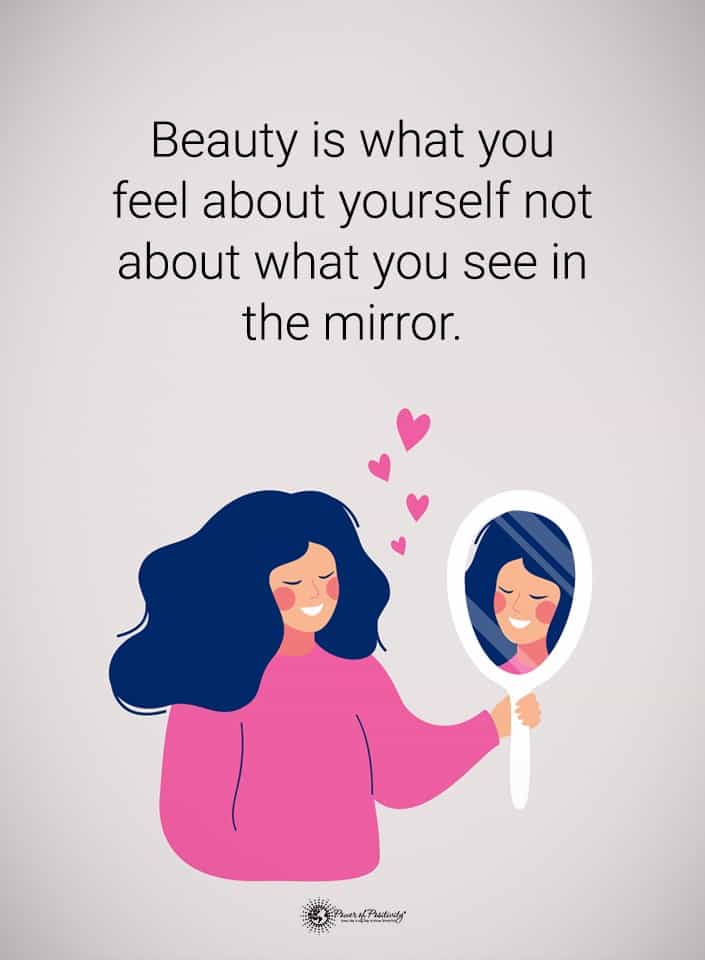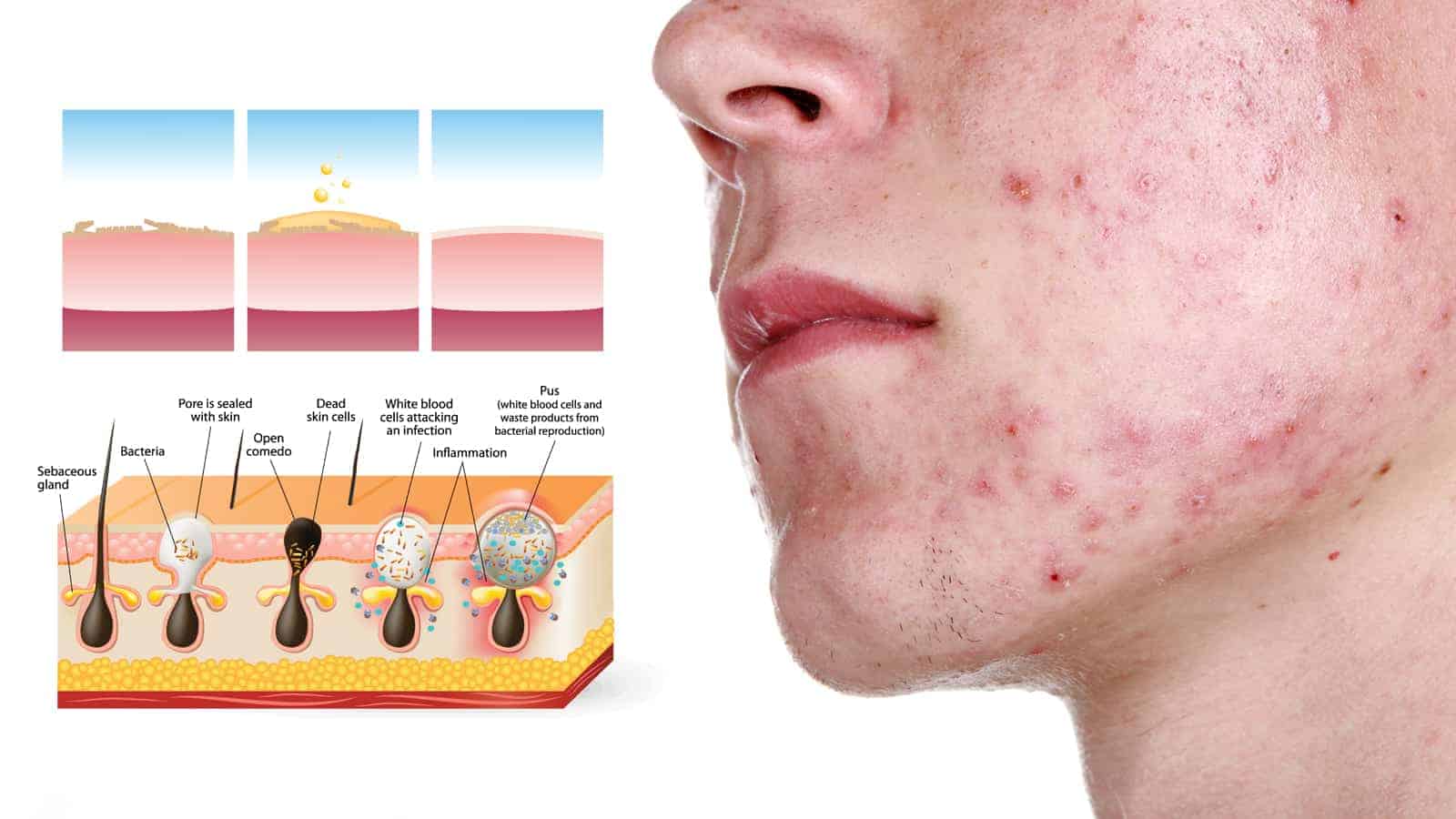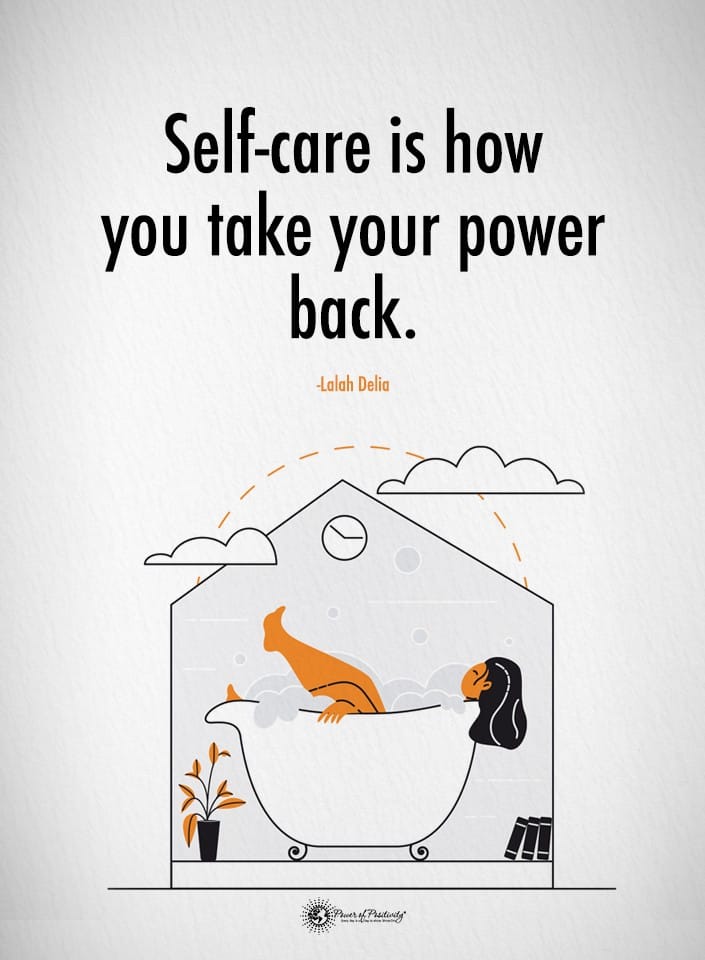There’s nothing worse than an unsightly zit, and why is it that pimples happen at the most inopportune times?
These ugly blemishes pop up out of nowhere, and they leave you feeling embarrassed and self-conscious. Pimples are thought of as a problem that only plagues teenagers, but they can affect anyone at any age.
There are many herbal and home remedies that you can use to help sudden flares, but the problem is that they can come back. It would help if you got to the root cause to stop the issue before it begins. To combat zits, you must understand what causes these blemishes.
Some people are more susceptible to zits than others, so you must find the root cause of your acne to correct the problem. Do your siblings or parents have issues with blemishes? According to The Genetics of Acne, family history can make your chances of developing these unsightly bumps more likely.
However, there are no acne-related genes that can identify whether you will have an issue. Some skin experts believe that zits are more of a hormonal and lifestyle factor than genetics. Still, conditions like rosacea can cause inflammatory conditions on the face, and it brings along blemishes.
While rosacea is incurable, many treatments can help. Though it’s not acne proper, it’s a medical condition from within that shows to the outside. According to the Mayo Clinic, natural ruddiness is caused by hereditary and environmental factors.
What Foods Cause Acne?
How many times have you heard someone say that if they eat chocolate, they will get pimples? Perhaps, you’ve even said it a time or two yourself. There is a direct link to what you eat and breakouts, though some medical experts disagree on the matter.
Some many articles and studies show that chocolate doesn’t cause breakouts, but plenty of food can activate yeast on the skin, which will. If you’re prone to food sensitivities, then there are some foods that you should avoid. Cut out or limit food intake, cheeses, sugary snacks, baked goods using white flour, fast foods with high-fat content, and processed junk.
Additionally, canned foods also have a high level of sodium and other preservatives that can be harmful to your entire system, though they won’t specifically cause acne. Rather than filling your diet with these foods known for causing an overproduction of yeast, why not fill up on nuts and whole grains containing zinc?
It’s essential to get plenty of leafy vegetables and add fatty omega-3s to your diet, which you can get from avocados and salmon. Make sure you use plenty of herbs in your cooking, especially turmeric. Lastly, consuming foods that are rich in vitamin A like pumpkin and carrots is also beneficial.
When you feel sweet hungry, don’t reach for that candy bar. Instead, fill up on fruits and berries to ensure your body gets the antioxidants that it needs. Your diet can certainly influence what’s going on in your body, and it can help prevent inflammatory breakouts caused by yeast.
Five Suprising Ways Your Body Causes Pimples
 What’s happening on the inside of your system can certainly show on the outside? For instance, when your body retains water, it shows by swelling. If you have excessive bloating in your stomach, you pass gas.
What’s happening on the inside of your system can certainly show on the outside? For instance, when your body retains water, it shows by swelling. If you have excessive bloating in your stomach, you pass gas.
Acne can be from an internal challenge or caused by topical issues that create blemishes. Here are the five problems within your body that will cause zits.
1. Hormonal Changes
Hormones rage during the teenage years, and that’s what makes it so common to see teenagers with a face full of acne. Hormonal fluctuations can happen at any age, and some with conditions like polycystic ovary syndrome will experience acne due to these hormonal shifts.
PCOS is a common hormone problem found in women. It can affect fertility and body weight and cause situations like overgrowth of body hair and acne. According to an article in Women’s Health Magazine, PCOS causes an imbalance of androgen, testosterone, and estradiol.
While PCOS is one major contributor to blemishes, it’s not the only thing that can cause imbalances. Hyperthyroidism and hypothyroidism will also cause fluctuations in hormones, among other issues.
2. Bacterial Infections
One of the main reasons why people have acne is due to bacterial infections within the body. The skin is highly susceptible to bacteria, and this bacterium grows when it encounters excess oil. The oil and bacteria combination causes the area to become inflamed and form blemishes.
If you have pus-filled zits, then it’s due to this reason. Your body can have many different types of blemishes, but these are well known for the clear liquid they ooze when you squeeze them. You can use antibacterial cleansers to thoroughly clean the face and any cream with salicylic acid to help dry out the area.
3. Dead Skin Cells
While it’s disgusting to think that you shed skin as some animals do, your skin is constantly getting rid of old cells to make way for new growth. In fact, you lose between 30,000 and 40,000 skin cells each hour, which is over a million each day, according to an article in the Boston Globe. It’s not uncommon for these dead cells to become trapped within the pores, especially if you have larger holes.
Once the skin piles into these tiny craters, the oils trap them, where they become inflamed and fester. Therefore, it’s so important to keep your pores cleaned out if you have larger ones, and you can use natural remedies to shrink these cavities as well.
It’s essential to exfoliate your skin using a face scrub at least twice a week. When using any makeup, make sure that it doesn’t have excessive oils, which can worsen blemishes. Also, a light moisturizer can help your skin during the replenishing process so that the dead cells are washed away and your face is hydrated for new growth.
4. Yeast Infections
When you think of yeast infections, you probably think of them developing in the private areas of the body. However, yeast can cause problems anywhere on your skin, and it can become infected too. Food sensitivities can trigger yeast overproduction, especially when you have allergies to yeast.
Once the yeast begins to grow, the fungus will surround the hair follicles and cause an infection. How can you tell if your zits are caused by yeast or another issue? Well, blemishes caused by yeast infections will appear anywhere on your body, as well as your face.
Additionally, it’s usually accompanied by an itchy rash. You can prevent this type of acne by avoiding things prone to cause yeast, like bread and baked goodies. It’s beneficial to avoid wearing any clothing with synthetic fibers, so you should stick with cotton.
Also, if you have issues with excessive sweating, then it can increase yeast production. According to The National Institute of Health, hyperhidrosis is a condition that causes the body to sweat abnormally, and it’s not associated with exercise or being in hot temperatures. There are ways to get this disorder under control, and it can be the key to ridding yeast variations of acne.
5. Excess Production of Sebum
You may have excessive sebum on your skin. However, you probably don’t know about sebum unless you have medical knowledge. Underneath your skin, you have tiny secretors called sebaceous glands.
The main job of these glands is to provide lubrication for both your skin and your hair follicles. In some instances, these glands become overactive and create more sebum than necessary. This excessive amount of sebum can clog the skin’s pores, and it will cause blemishes.
To prevent getting pimples from a buildup of sebum, you should wash your face between 2-3 times each day. Another way to counterbalance the oils is by drinking more water. While you may feel you need heavy moisturizing cream for your face, you should stick with something on the lighter side.
Heavy lotions can cause damage to the pores, which makes them more susceptible to an inflammatory condition.
 Final Thoughts on Issues That Cause Pimples
Final Thoughts on Issues That Cause Pimples
Has this article helped you uncover the reasons behind your breakouts? Since each person is different, you might need to see a dermatologist if your acne is out of control. Few people understand that much of their lifestyle contributes to the embarrassing pimples on their face, neck, and back.
Sadly, pimples can occur on anyone at any age, and they can cause you to lose your self-confidence too. The good news is that this is a highly treatable condition, and much of it can be done by making a few alterations in your eating habits. Once you identify the root cause of your breakouts, you can take proactive measures to fix it.


















